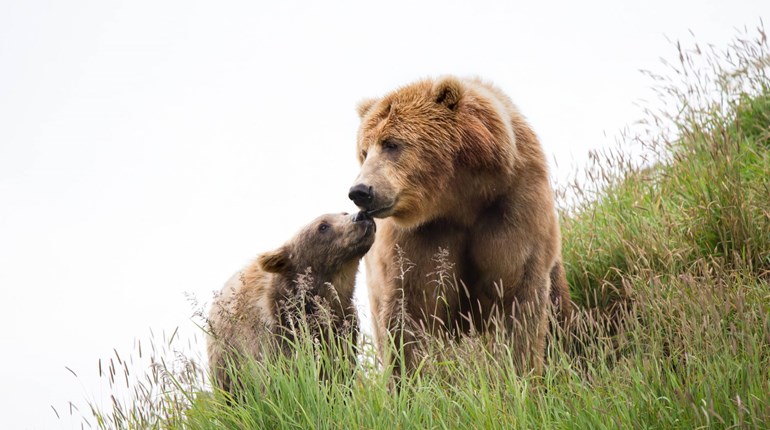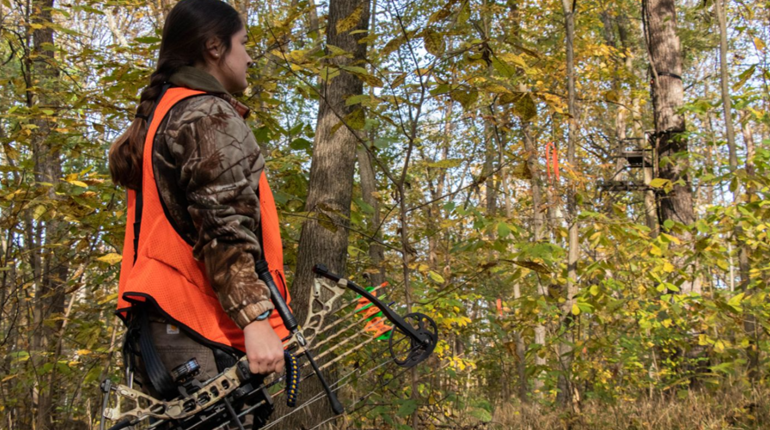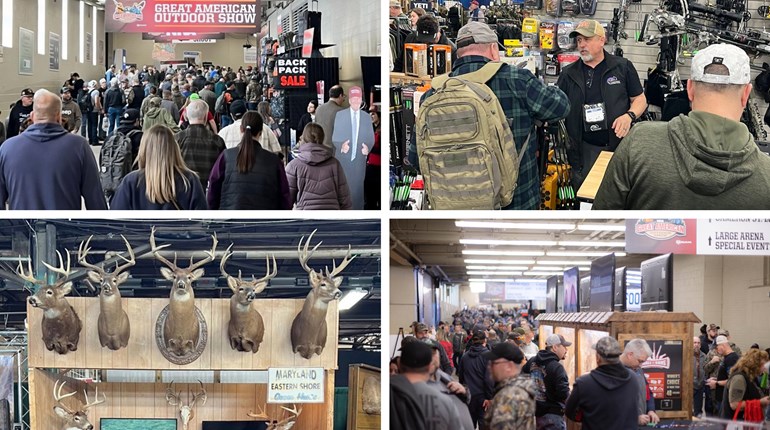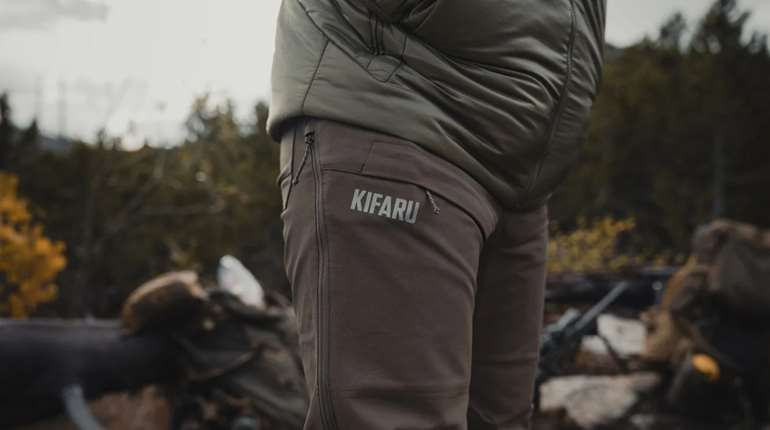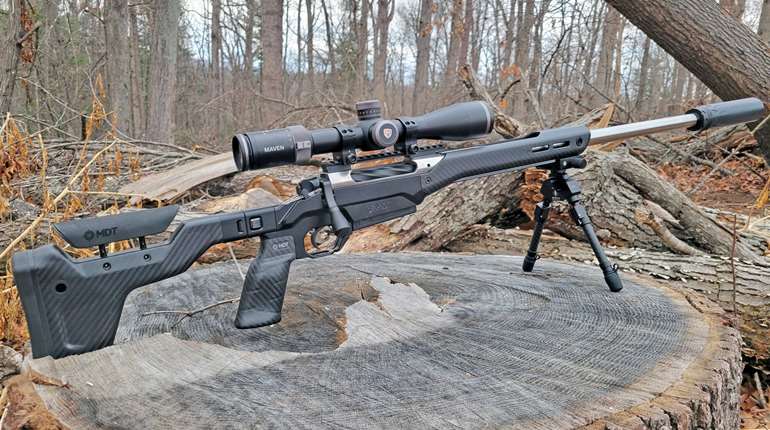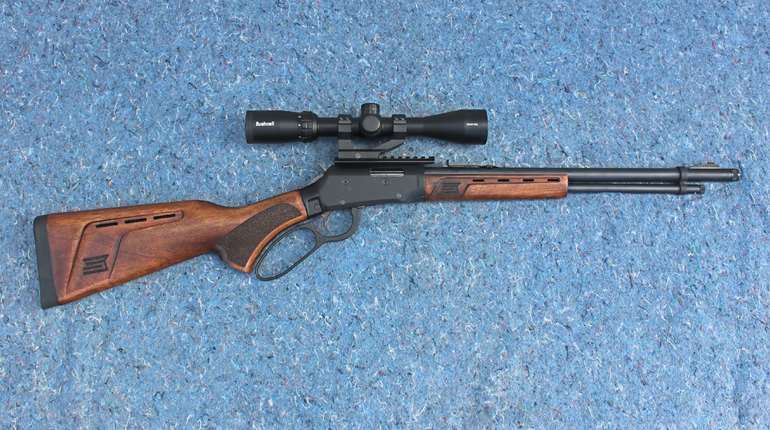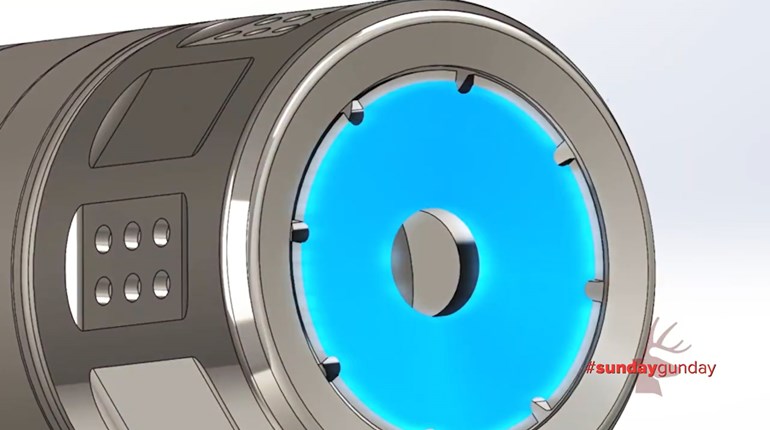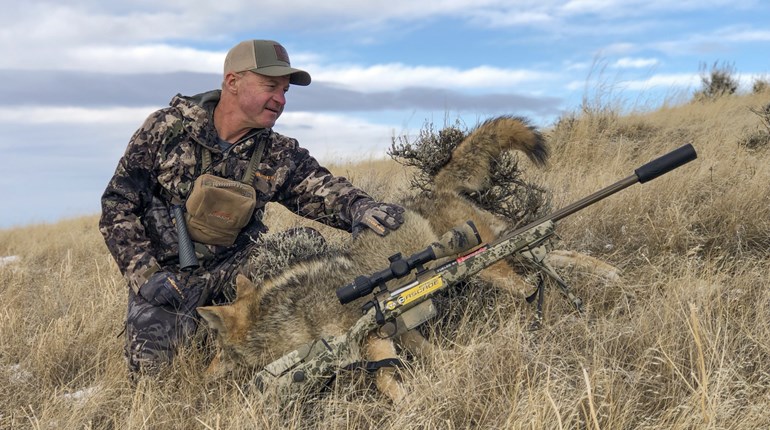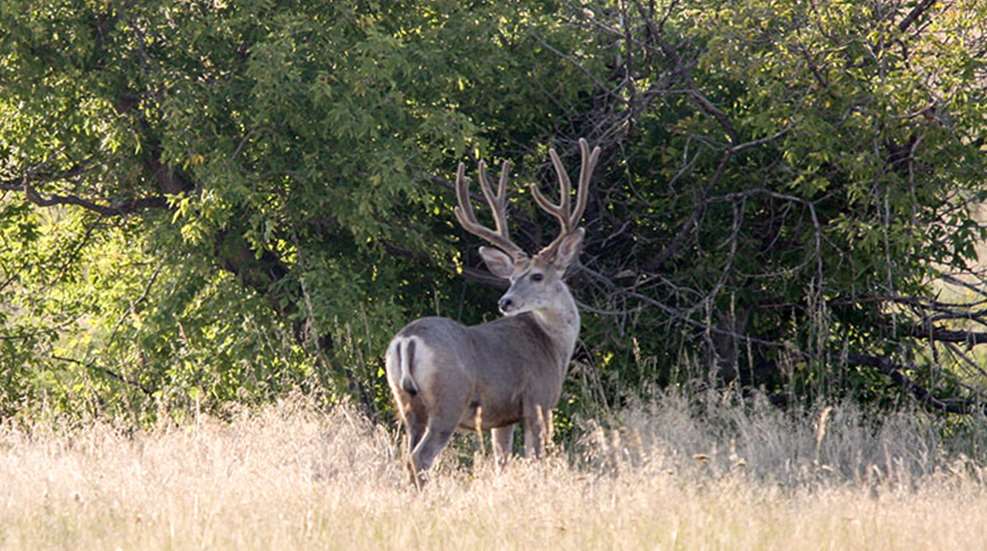
Bowhunters tackling the challenge of open-country mule deer hunting face a daunting task: find a buck in millions of acres of cover. Open country is big with unlimited mule deer hideouts, but in the early season you only have to focus on the shady locations for success. Hunt shade instead of deer.
August and September can be characteristically hot in mule deer country. Temperatures may range from 70 to more than 100 degrees. Roly-poly mule deer sporting extra pounds in preparation for the rut and winter ahead seek shade to reduce panting. Winter coats are still a few weeks in the making, but a buck’s summer weight of 40 or more additional pounds increases discomfort when he’s in the open sun. Bucks seek shade anywhere in their fall territory.
You may be luckier than a back-to-back Powerball winner and have a vantage point to watch where a bachelor group of bucks beds. But hills, draws and canyons oftentimes veil bachelors exiting from morning feeding fields, requiring you to go on the hunt for their bedroom of the day. Equip yourself with a quality binocular like Nikon’s Prostaff 3S with 8X magnification for a wide field of view to spot bedded bucks.
As you approach your last point of contact, avoid being skylined and begin looking for shady escapes from afar. Mule deer use any available overhang as a canopy from the sun. Scan for lone cedar bushes, north-facing cliffs, steep creek banks and even large hay bales stacked for winter livestock feed. As you move through mule deer country and pass by shady locations vacant for the day, take a moment to inspect the shadows for signs of bedding activity. Mule deer paw out a bed and over the years these bedrooms acquire a signature, rock-free oval. Note the location for a future reference before continuing your search.
By moving your eyeballs from shady location to shady location you minimize the amount of country to scrutinize, but you still need to detect bits and pieces of mule deer. Look for the flicker of an ear, a shiny nose or even the white rump patch of a hidden deer. The best sight is an antler tip poking from behind a bank with cover shrouding the buck’s eyes.
Some terrain may not allow you to adequately glass without stalking closer to peer down or up. Wear open-country camouflage like Mossy Oak Brush, hope for wind to cover noise and go in stocking feet. In some terrain your investigative stalk could mean staring right into the face of a bedded buck well within bow range. One way to minimize the surprise is to hide behind a decoy like those made by Heads Up Decoy (headsupdecoy.com) or don a mule deer face-hat from Be the Decoy (bethedecoy.com). Both options mimic a mule deer doe, and a bedded buck may simply think it has a visitor instead of danger.
If your script plays out the buck may stand up, giving you the perfect, broadside shot. Don’t bet on it. In fact, you’ll likely have to wait for a buck to stand or make it stand. Waiting plays on your nerves and pushing the point, with rock tossing or whistling, oftentimes results in an explosive, no-shoot exit by the buck.
In situations where you have a partner nearby, have him circle several hundred yards away to a position that’s between you and the buck, but off to the side. Once stationed, your partner can stand in full view, walk slowly or even wave his arms. A bachelor group of bucks will focus on the obvious disturbance and will likely stand to examine the threat, giving you an opportunity to launch an arrow at a buck looking away.













